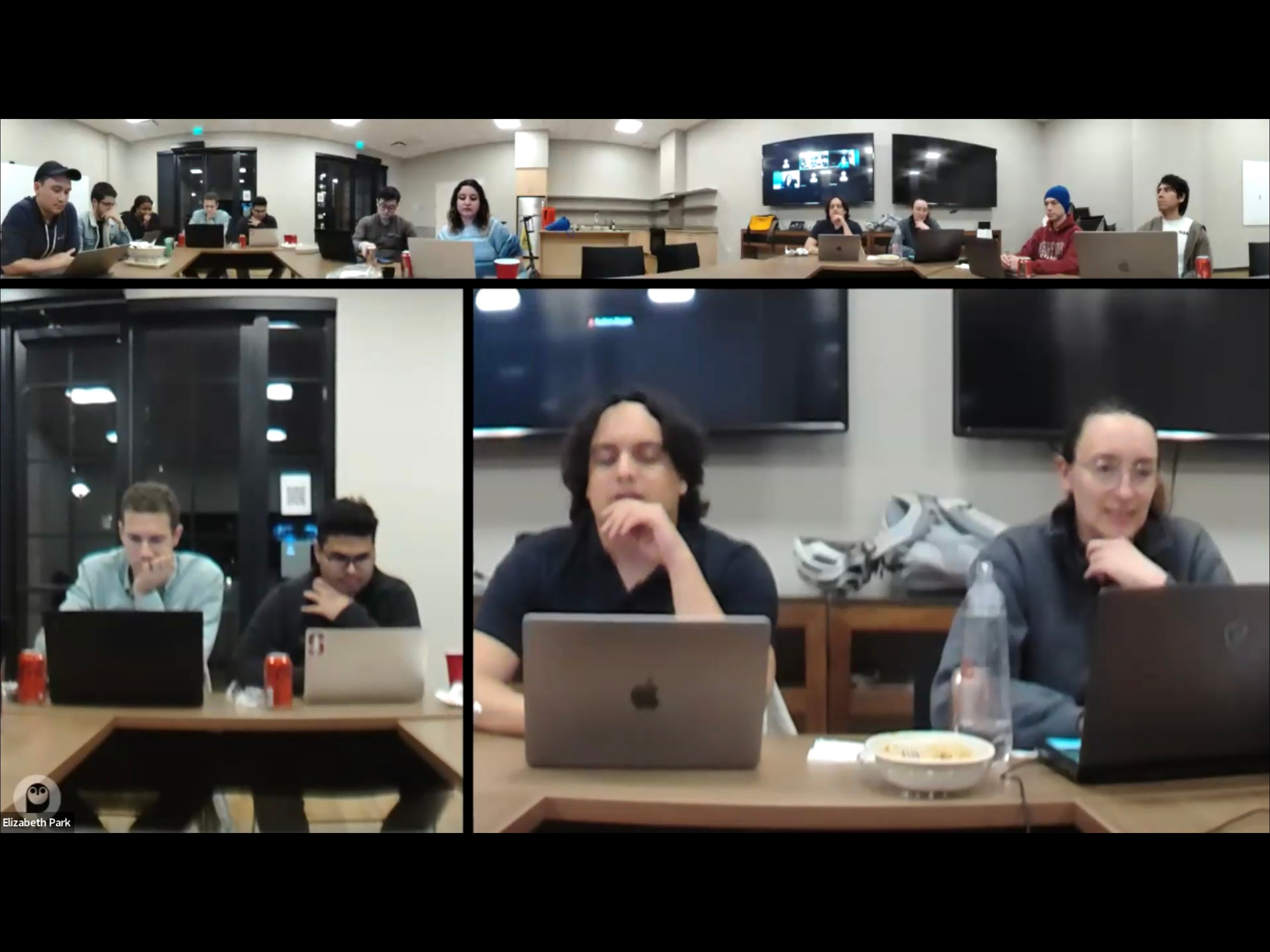The Graduate Student Council (GSC) unanimously passed a resolution developed with the Undergraduate Senate on first amendment protections. Councilors also debated a pilot exam proctoring program at the Tuesday meeting.
Free speech bill
Councilors unanimously passed the Joint Resolution on the State of First Amendment Protections, commonly referred to by student government representatives as the free speech bill. The bill’s co-author Perry Nielsen Jr., a master’s student in health policy, presented a few amendments prior to the vote.
In the resolution, the GSC and the Undergraduate Senate (UGS) “affirm and assert all University students’ right to the expression of free speech” and call on the University to clarify or update policies restricting student expression.
Amendments added more explicit protections for international students.
The GSC also added a clause on the captive audience framework, allowing for students to be viewed as workers within Stanford and arguably protecting them under Title VII of the Civil Rights Act of 1964, which prevents an administration from restricting the free speech of its workers.
Another amendment called for Stanford to update its Policy on Campus Disruptions. The policies went into effect in 1967 and made it a violation for faculty, staff and students to prevent or disrupt “the effective carrying out of a University function or approved activity.”
Revised policies should clearly outline consequences for disruptions based on the necessity of the event to “smooth University functioning,” per the resolution.
This amendment was added after 18 pro-Palestine student protestors were cited with misdemeanors during the University Feb. 24 welcome session for Family Weekend. The students interrupted panelists with chants and were eventually escorted out by security.
The bill also calls for an end to designating places like White Plaza “free speech areas” in policies. They argued that the term implies that students cannot exercise free speech rights everywhere on campus.
Nielsen said the this specific call was a high-level long-term change. “But it’s something we’re willing to work towards with the University.”
Exam proctoring pilot program
A new pilot program aims to measure the differences between exams administered with and without a proctor, explained Xavier Millan ’26, the undergraduate student co-chair on the Academic Integrity Working Group (AIWG).
It will measure differences based on proctors’ and students’ feedback on observed behavior during the exam, in addition to statistics on the number of honor code violations and overall performance.
The pilot will start in spring quarter with around 10 classes selected based on faculty interest and continue into future quarters. It will only focus on in-classroom exam proctoring, with the potential to extend to online exams in the future, Millan said.
Some GSC members voiced concerns about the pilot placing burdens on students taking the exam.
“Your first job is to be doing the exam, not asking ‘is X behavior happening less than Y behavior,’” said Kavya Sreedhar, a councilor and a fifth-year electrical engineering Ph.D. student.
